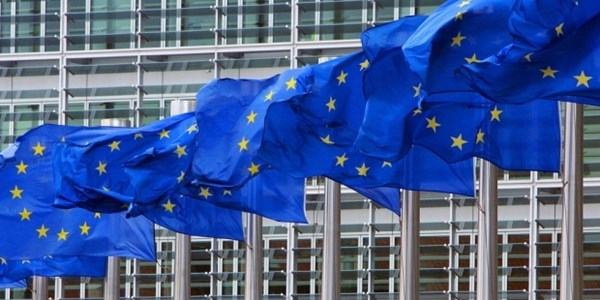EU imposes sanctions on 8 more individuals responsible for annexation of Crimea
The European Council has imposed sanctions on 8 more people responsible for Russia's annexation of Crimea.
"The persons added to the EU sanctions list include law enforcement officials - judges, prosecutors and security officers - responsible for enforcing Russian law in the illegally-annexed Crimea and Sevastopol. Those individuals have taken biased decisions in politically-motivated cases, and prosecuted or oppressed opponents of the illegal annexation of Crimea and Sevastopol," reads the statement published on the European Council’s website.
Among the people included in the list are the judge of the Supreme Court of the Republic of Crimea Galina Redko, the head of the FSB for the Republic of Crimea and the city of Sevastopol Leonid Mikhailyuk, the judge of the Kiev District Court of Simferopol Andrei Dolgopolov and the prosecutor of the Russian Southern Military District Yevgeny Kolpikov.
The press release clarifies that now 185 individuals and 48 legal entities are under sanctions for the annexation of Crimea.
The sanctions were first imposed in June 2014 in response to attempts to undermine Ukraine's territorial integrity and destabilize the country. They have been extended every year. European sanctions against Russia consist of several packages. The first package includes individual sanctions against citizens of the Russian Federation and Ukraine, which Europe considers responsible for undermining the territorial integrity of Ukraine.
In February 2014, armed people in uniforms without insignias appeared in Crimea and captured the Supreme Council of Crimea, the Simferopol Airport, the Kerch ferry crossing and other strategic objects, and prevented the Ukrainian army from taking action. Initially, the Russian government refused to acknowledge that these armed people were Russian soldiers, but President Vladimir Putin later admitted it.
On 16 March 2014, a referendum on the status of Crimea was held in Crimea and Sevastopol, in which the inhabitants supposedly voted for the peninsula to become part of Russia. The outcome of the so-called referendum is not recognized by Ukraine, the EU or the US. On 18 March, Putin announced the “annexation” of Crimea to Russia.
International organizations have declared the annexation illegal and condemned Russia’s actions. Western countries have imposed economic sanctions on Russia in connection with the annexation. Russia claims to have “restored historical justice”. Ukraine’s parliament, the Verkhovna Rada, declared 20 February 2014 the start of Russia’s temporary occupation of Crimea and Sevastopol.
